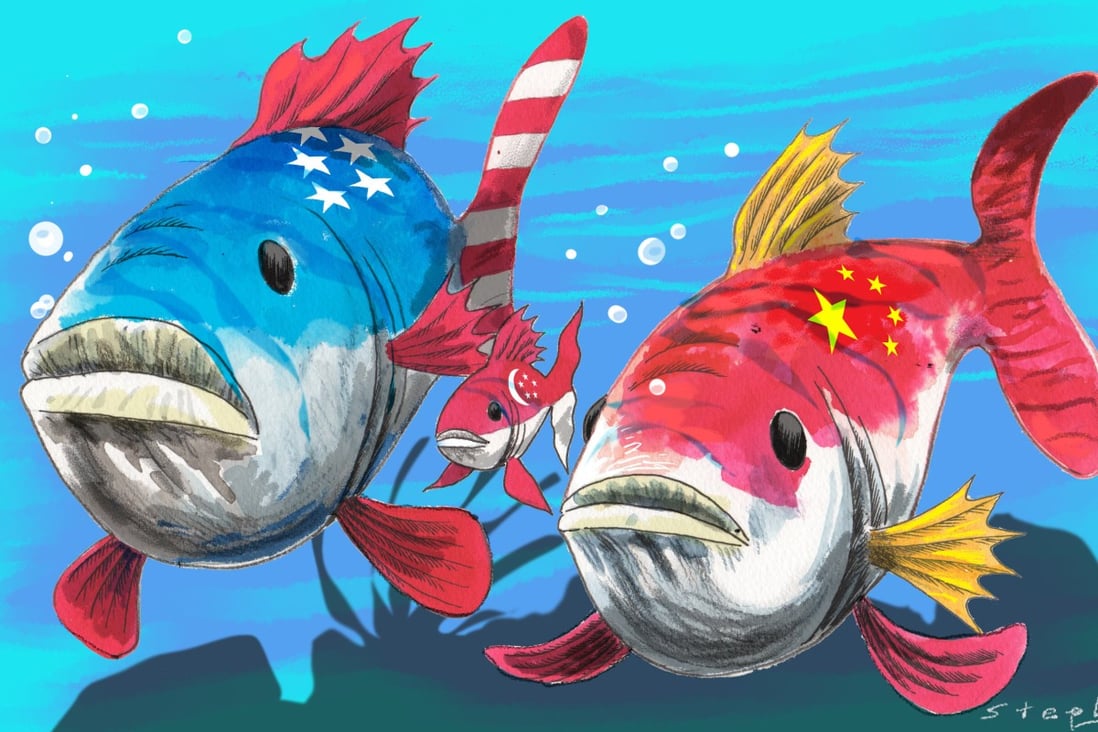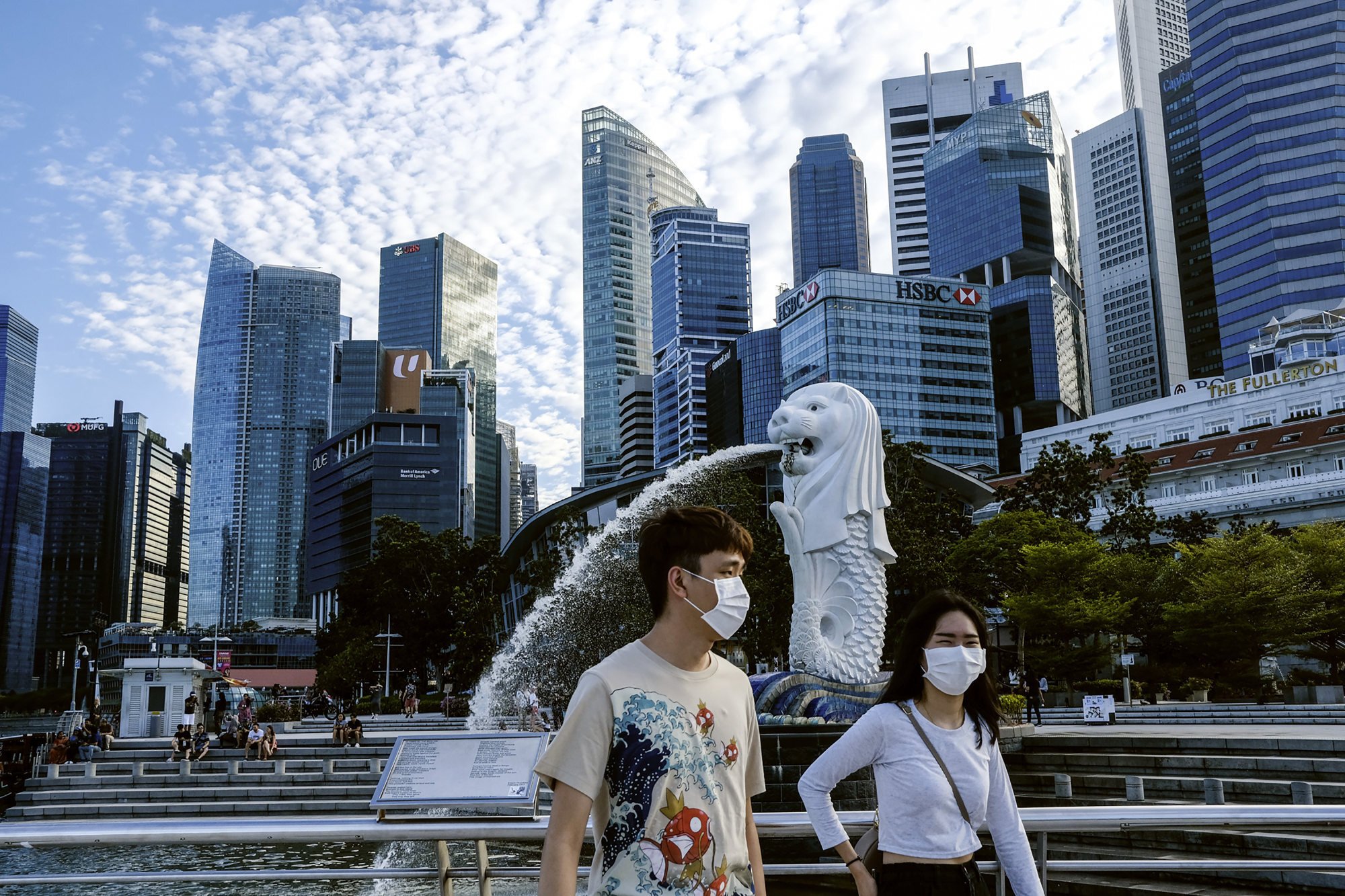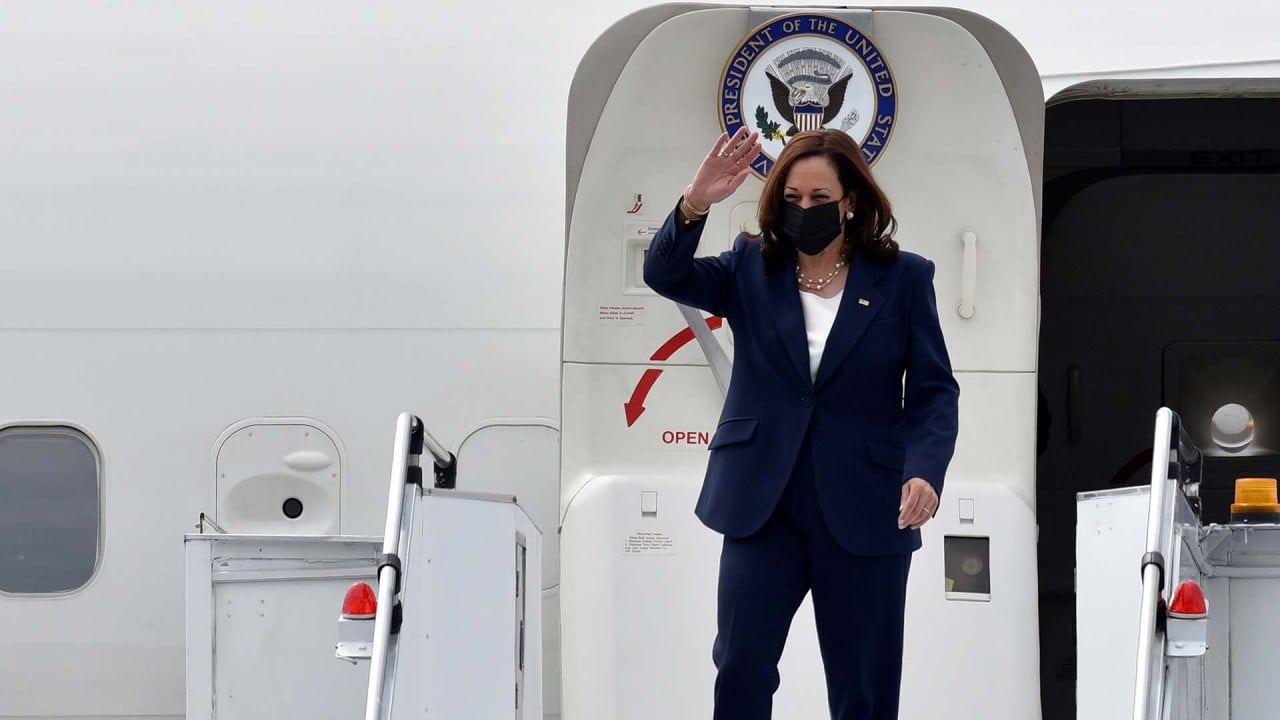Wow this most certainly shows that the PAP is amongst the best of the best.
Richard Heydarian
How ‘poisonous shrimp’ Singapore became the US’ undeclared ally in Asia
- The city state has deftly fortified strategic ties with the West while remaining a trusted interlocutor to and top investor in China
- Although it was overlooked for the US’ upcoming democracy summit, Singapore remains America’s most reliable strategic partner in Southeast Asia

Illustration: Craig Stephens
“In a world where the big fish eat small fish and the small fish eat shrimps, Singapore must become a poisonous shrimp,” former Singaporean prime minister Lee Kuan Yew said in a famous 1966 speech. Bereft of allies and surrounded by hostile neighbours at the height of the Cold War, Lee made a passionate plea for steadfastness and self-reliance in face of danger.
Half a century later, Singapore has transformed into a 21st-century Sparta, respected by major powers and boasting one of the world’s most well-equipped armed forces. Thus, the Biden administration’s decision to snub Singapore, among other Southeast Asian states, for its upcoming Summit for Democracy has raised some eyebrows.
But what is often overlooked about Singapore is its quiet yet steady emergence as America’s most reliable strategic partner in Southeast Asia. Remarkably, the city state has fortified strategic ties with the West while remaining a trusted interlocutor to and top investor in China, underscoring Singapore’s diplomatic finesse.
Following Singapore’s expulsion from the Malayan federation, the country’s founding fathers adopted a distinct strategic doctrine. It was anchored in two key tenets – the importance of pragmatism in dealing with larger neighbours as well as the recognition of existential vulnerability to external threats.

A couple wearing face masks walk past the Merlion statue in Singapore on March 14, 2020. Singapore’s strategic doctrine has been anchored in two key tenets – the importance of pragmatism in dealing with larger neighbours as well as the recognition of existential vulnerability to external threats.Photo: AP
The upshot of this strategic doctrine, which was institutionalised by Lee and his foreign minister Sinnathamby Rajaratnam, was a sophisticated, non-aligned foreign policy. As Lee declared in the thick of the Cold War, “We are non-aligned if we are asked to choose between competing power blocs.”
The end of the Cold War, however, saw Singapore gradually transform into America’s most reliable partner in the region for three key reasons. First, Singapore has served as a bridge between post-Mao China and the West, deftly nudging both sides to converge around capitalist prosperity.
Lee, a Cambridge-educated barrister who assiduously worked on his Mandarin, influenced Chinese leaders from Deng Xiaoping to Xi Jinping across the decades. Singapore’s successful combination of capitalism and illiberal politics served an inspiration for a whole generation of Chinese leaders, who oversaw an unprecedented era of market reforms.
This is why, upon Lee’s passing in 2015, China’s Foreign Ministry issued a statement hailing the Singaporean leader as “a uniquely influential statesman in Asia and a strategist embodying Oriental values and international vision”.
Singapore has continued to play this indispensable role under its current prime minister, Lee Hsien Loong, who has consistently warned against a new Cold War which would “be bad, not just for other countries big and small, but for both America and China, too”.
Lee Kuan Yew: life and legacy
In fact, a whole host of US presidents from Richard Nixon to Joe Biden have relied on Singaporean leaders’ advice, treating their views as a bellwether for understanding broader geopolitical trends in Asia.But what makes Singapore even more important to Washington is the rapid expansion in bilateral defence cooperation in recent decades. Historically, the US has relied on Southeast Asian treaty allies such as the Philippines, which hosted America’s largest overseas bases throughout the 20th century, to project power in the region.
But the Philippines proved too fickle for the US, which lamented the expulsion of American forces from the island nation amid an upsurge of Filipino nationalist sentiments in the early 1990s. It was precisely at this juncture that Singapore offered to host some of America’s military assets, setting the stage for a new era of intimate and consequential defence cooperation.
Thanks to a series of key defence deals – from the Memorandum of Understanding in 1990 to the Strategic Framework Agreement in 2005 and the 2019 Protocol of Amendment to the 1990 MOU – the US and Singapore have rapidly upgraded their military cooperation. Since 2016, the two sides have finalised almost US$40 billion in bilateral defence deals.

In Singapore, US VP Harris talks about South China Sea, US exit from Afghanistan and Covid-19
Today, Singapore is the only Southeast Asian country with access to the US-made F-35 fighter jets, while US littoral combat ships enjoy access to designated facilities in the strategically located city state. In the words of one US official, Singapore is a partner that acts like an ally.
Despite its commitment to non-alignment, the city state has tended to tilt towards the US. After all, Singapore has relied on and benefited from America’s naval prowess, which ensures a high degree of freedom of commerce and navigation in Asian waters.
Even so, Singapore has always been careful to not fully alienate China. To this end, the city state has offered Beijing reciprocal strategic agreements, including the 2008 Agreement on Defence Exchanges and Security Cooperation, which was upgraded in 2019. Though not as consequential as Singapore’s defence deals with Washington, this series of reciprocal agreements have largely managed to mollify China’s fears of a full Singaporean alignment with the West.
Finally, Singapore, a key member of the Association of Southeast Asian Nations, has also emerged as an anchor of regional peace and stability. A host to major global conferences such as the annual Shangri-La Dialogue and equipped with state-of-the-art naval forces, the city state is a regional power that consistently emphasises the importance of international law and a rules-based order in Asia.
Some pundits have even begun to discuss the growing role of a “Squad”, with Singapore operating in tandem with Quadrilateral Security Dialogue members Australia, India, Japan and the US in preserving a free and open order in the region. As Lee said while giving the 2009 S. Rajaratnam Lecture, Singapore should always remain a major contributor to regional stability so that major powers “have an interest in our continued survival and prosperity as a sovereign and independent nation”.
The Biden administration might have skipped inviting Singapore to the summit for democracies. But with two cabinet-level US officials visiting the city state within a span of two months earlier this year amid rapidly growing defence and strategic cooperation, there is little doubt as to who is America’s undeclared ally in Asia.
https://www.scmp.com/comment/opinio...rimp-singapore-became-us-undeclared-ally-asia
Last edited:



